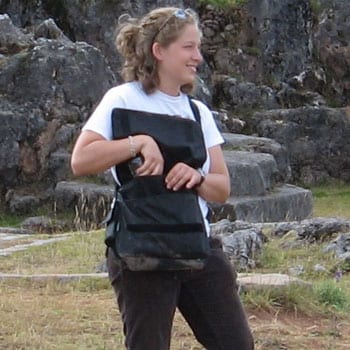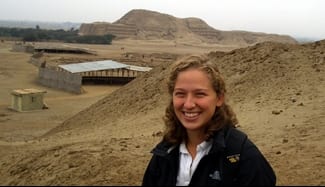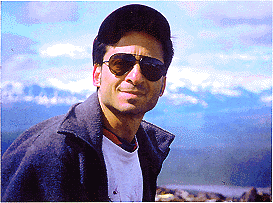Nineteen SMU Honors students have been awarded Richter Research Fellowships through the University Honors Program to conduct independent research around the globe this summer. The undergraduates’ research topics range from child obesity in Australia to nonprofits in the Republic of Zambia.
For the second year, grants also have been awarded to Honors students for independent study at SMU-in-Taos.
“The Richter fellowships represent an important opportunity for Honors students to pursue topics that interest them — inside or outside their primary majors,” says David Doyle, director of the University Honors Program and assistant dean of Dedman College of Humanities and Sciences. “Upon returning from one to three months of focused research, our Richter University Honors Scholars write and submit scholarly articles to academic journals and magazines.”
SMU is one of only 12 universities that offer the competitive fellowships, which are supported by the Paul K. and Evalyn E. Cook Richter Memorial Funds.
This year’s winners:
Ashley Bruckbauer, senior art history and advertising major from Round Rock, Texas, will study the influence of foreign teachers in Nanjing, China.
Andrew Coit, senior mechanical engineering major, with Spanish and music minors, from Houston, and Erica Ritz, sophomore international studies and art history major, with a minor in Italian, from Minneapolis, will travel to London and Greece to examine the controversy surrounding the ownership of cultural artifacts such as the Elgin Marbles.
Vivian Costandy, junior majoring in international studies and English, with a Spanish minor, from Plano, Texas, will travel to Buenos Aires, Argentina, to investigate the fallout of the “dirty war” resulting from the 1976 military coup.
William Elder, junior history and German major, with minors in classical studies and Latin, from Dallas, will investigate early military history in Osnabruck, Germany, and Cambridge, England.
P.J. Gardner, junior political science major from Omaha, Nebraska, will remain in Dallas to continue researching and writing his senior thesis on expansionism and American politics.
Steve Hader, senior majoring in finance, Spanish and Latin American studies from Grafton, Wisconsin, will investigate the e-commerce environment in Madrid, Spain.
Victoria Kean, junior marketing major, with minors in German and Chinese, from Pittsburgh, Pennsylvania, will study the effects of the Holocaust on the Jewish people in the German state of Thuringia.
Kate Kirk, junior finance and economics major, with a minor in international studies, from Van Alstyne, Texas, will analyze nonprofit organizations in the Republic of Zambia in Africa to determine their effectiveness, efficiency and sustainability.
Drake Konow, sophomore majoring in foreign languages and religious studies, with a human rights minor, from Baton Rouge, Louisiana, will explore religion and the impact of monastic life on life and culture in the south of France.
Patrick Littlefield, junior majoring in religious studies and psychology from Sherman, Texas, will study the Emerging Church movement in London. The worldwide movement seeks to adapt Christianity to a postmodern world.
Preston Kyle Osborn, sophomore political science and accounting major from Dallas, will explore the nature and volume of crime in early modern England through the SMU-in-Oxford program.
Rebecca Quinn, junior majoring in Spanish, French and art history from Dallas, will travel to Barcelona, Spain, to examine the relationship between nationalized Catholicism and church architecture from the 1940s to 1960s during Francisco Franco’s regime.
Astrud Villareal, junior biology major, with minors in chemistry and international studies, from Dallas, will study the child obesity epidemic and its human rights implications in Australia.
In addition, five Honors students received Taos Richter fellowships to pursue research in June at SMU’s New Mexico campus. They are Alexandra Davis, sophomore art history major; Kyle Hobratschk, junior majoring in art and creative advertising; Jacqueline Wilcher, sophomore business major; Caroline French, senior dance and business major; and Thomas (Drew) Washington, senior economics major.
Related links:
Richter Research Fellowships
Undergraduate research opportunities
Dedman College of Humanities and Sciences



